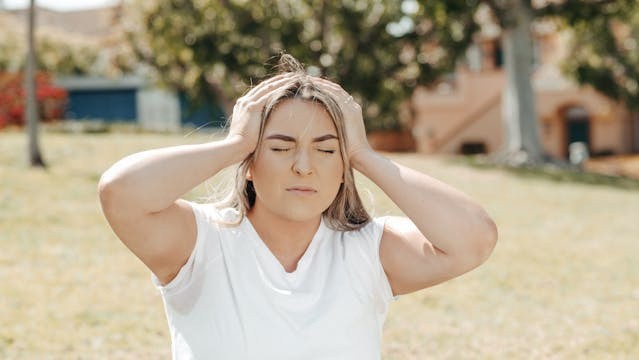
Millions waited for the anticipated total solar eclipse on Monday (April 8). However, several people reportedly felt unwell while waiting for the celestial event.
What Is Eclipse Sickness?
On Monday, millions witnessed the solar eclipse. However, at the same time, a number also took to social media to share that they were not their usual selves; some said they were feeling sick.
One said they had weird insomnia, lack of appetite, and other weird stuff that they couldn't explain. Another said they had been feeling sick the past few days.
A different user wondered if the solar eclipse had something to do with their feelings. User @M_C_Phoenix said they were feeling emotional days before the total lunar eclipse. The online user mentioned that doctors call it "eclipse sickness" while noting that those with mental illness are usually sensitive.
According to one report, "eclipse sickness" has several symptoms, including headaches, fatigue, changes in menstrual cycle, and insomnia. Although no concrete evidence links human health to solar eclipses, previous studies confirmed that celestial events can affect animals. For instance, researchers learned that dogs appear anxious during eclipse.
According to the Healthcare Communication Network, changes and "weird feelings" may be related to psychological issues. These elements include excitement, fear, and the impact of social cues. These reasons may also account for the emotional and physical reactions that some people associate with eclipse sickness.
Leann Poston, MD, a physician-writer and researcher at Invigor Medical, said she has not observed a connection between physiologic or disease changes and eclipses. However, cortisol levels might rise in response to an unusual experience that feels hard to understand, which can have harmful psychological and physical implications.
Humans may become thrilled when they witness such an incident -- the rare total solar eclipse -- which increases the chemicals norepinephrine and adrenaline, which play a role in the body's fight-or-flight response, per Poston.
As a result, heart rate, blood pressure, breathing rate, and blood supply to the muscles all rise. Additionally, Poston noted that cortisol boosts the bloodstream's release of glucose when it prepares the body for a "fight or flight" response.
Solar Eclipse Eye Damage Could Be Permanent
Meanwhile, doctors and NASA experts had warned the public not to stare directly at the sun during the solar eclipse as it could damage the retina. And the damage may be permanent.
According to them, the retina lacks pain nerves, so you might suffer from a damaged retina without sensing any symptoms and only learn about the condition when it's too late.
Experts with the American Academy of Ophthalmology (AAO) advise that instead of focusing only on "eye pain," those who are worried about their eyes should search for "visual symptoms within four to six hours" or even the day following the solar eclipse.
A "blind spot" in one or both eyes, headaches, blurred vision, unusual colors or discolorations in your vision, sensitivity to light, and visual distortions are some signs of damage from "solar retinopathy." These distortions can be bizarre, twisting or warping your central vision or making objects appear smaller than they are.
Many people recover three to six months after first experiencing the symptoms, according to AAO spokesman Susanne Medeiros. However, some experience distortion and a blind spot due to irreversible visual loss
RELATED ARTICLE : Sedentary Lifestyle Can Increase One's Risk of Stroke; Higher Than Those Spending More Time for Physical Activity
Check out more news and information on Medicine and Health in Science Times.
© 2025 ScienceTimes.com All rights reserved. Do not reproduce without permission. The window to the world of Science Times.












